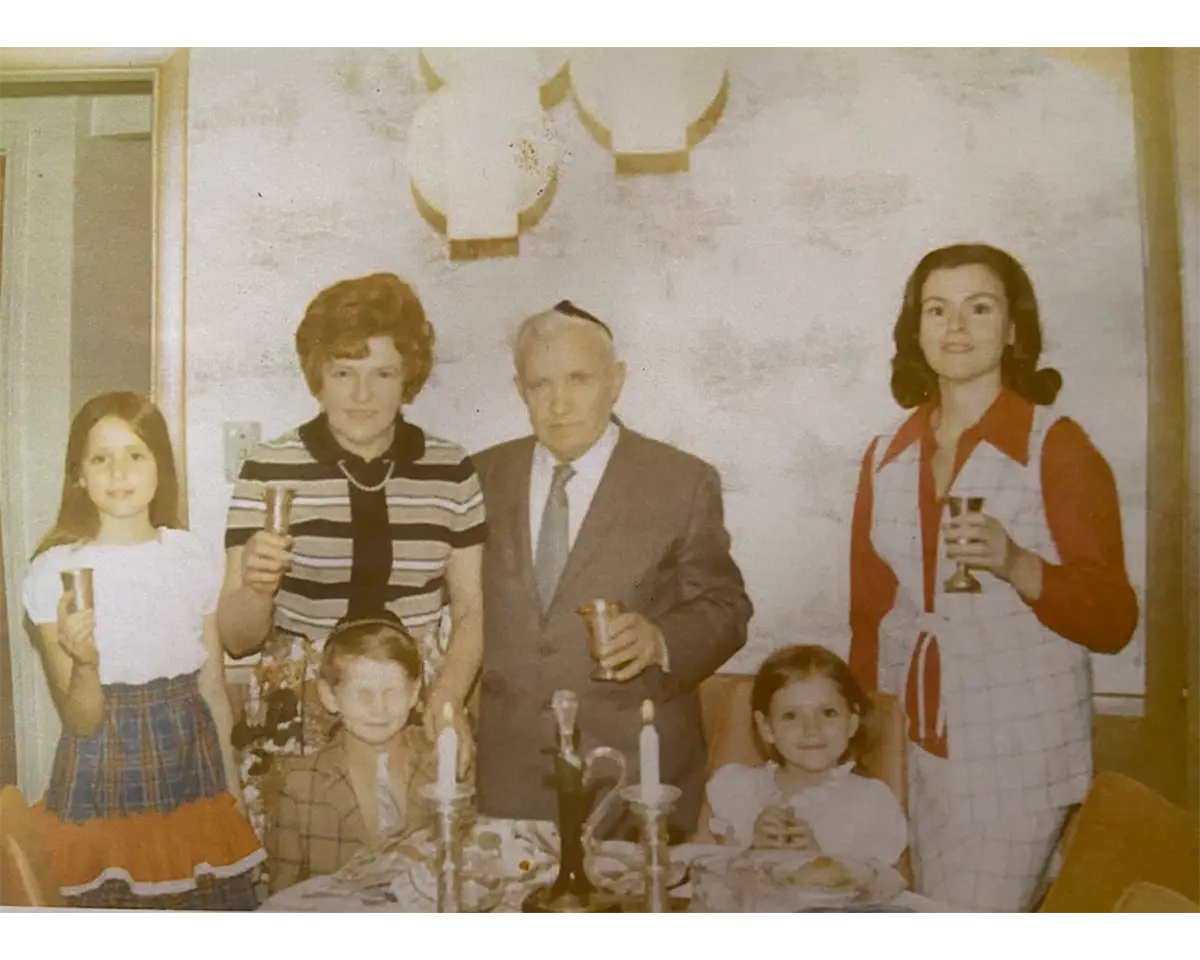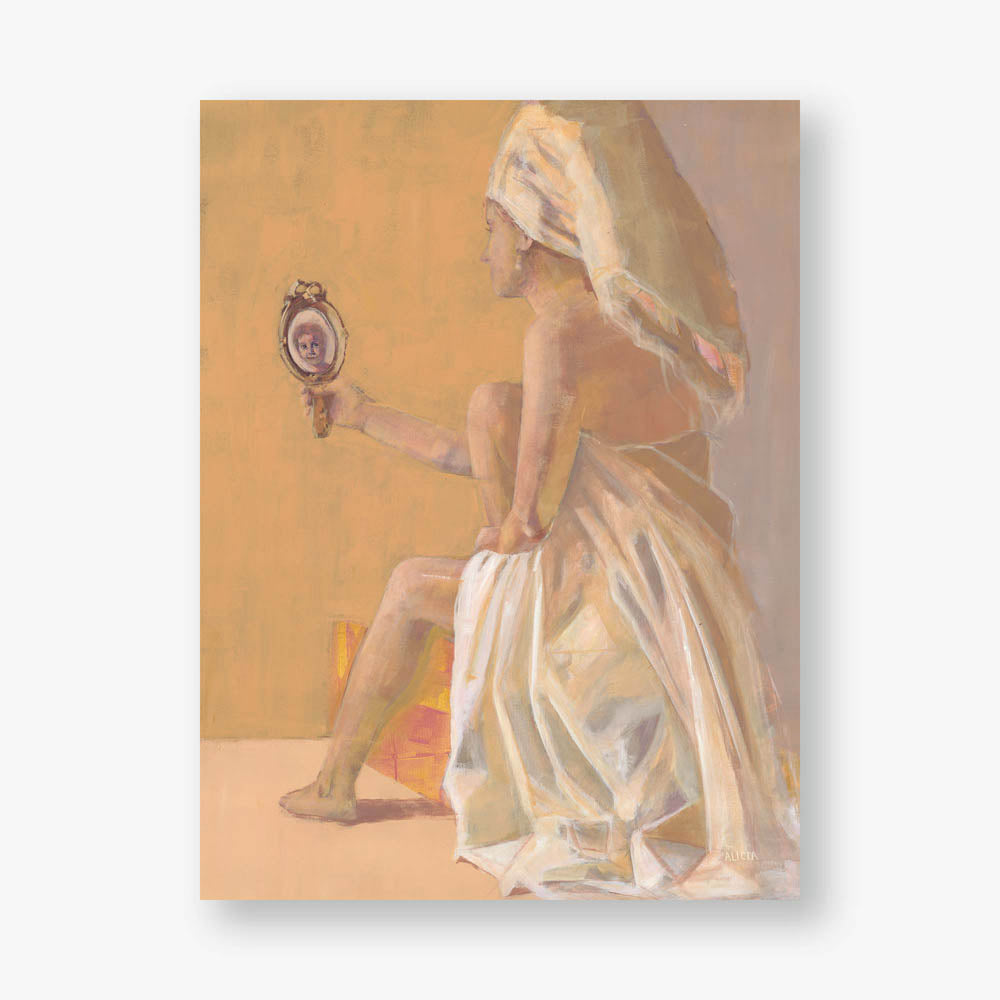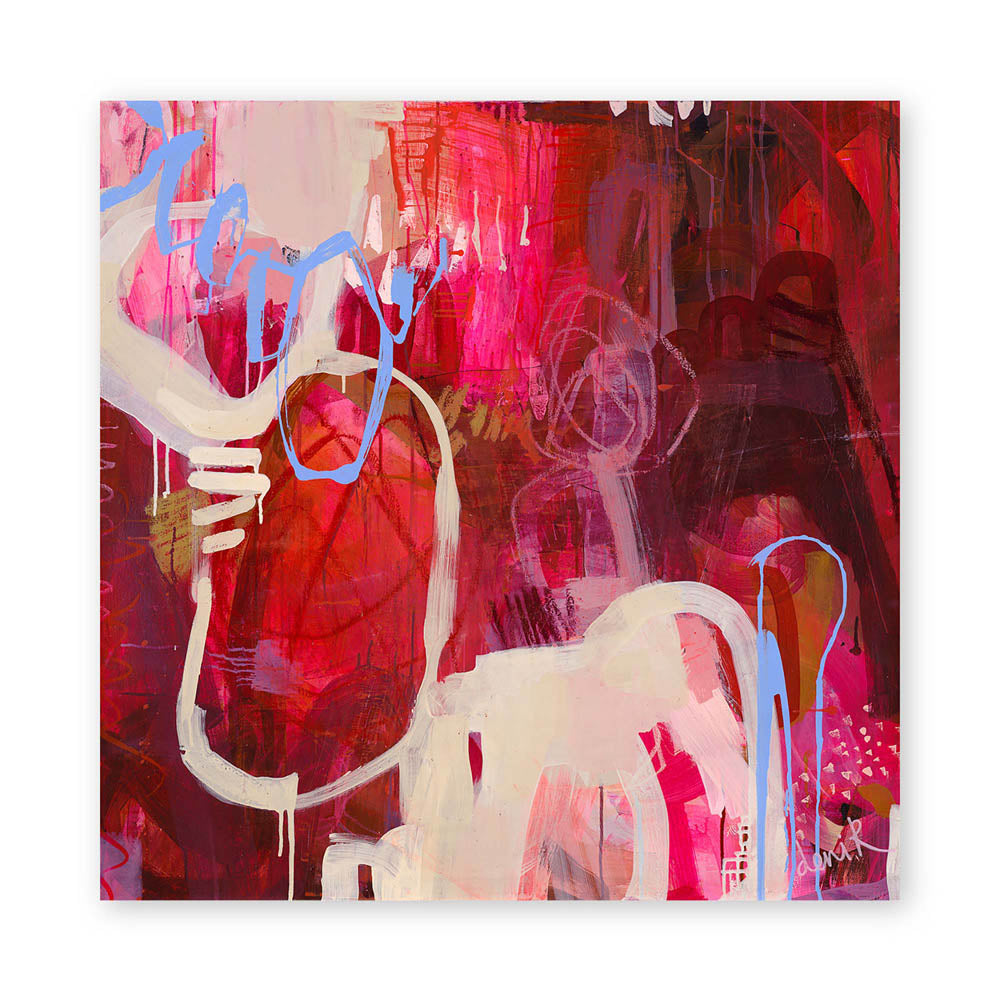“Names are the figurative homes within which we dwell,” says Dr. Elisabeth P. Waugaman, a scholar who has researched the emotional significance of personal names, particularly women’s. “When they don’t have meaning, there can be a sense of loss.” Names are both symbols and signals; symbols that establish a connection between an individual’s family, history, and culture, and signals that evoke noteworthy connotations in others, altering the way we move through the world. They classify us, shape our identity, and situate us within societal structures at the time of our birth. And yet, it’s all too easy to overlook their significance.
Perhaps one of the greatest mysteries of first names is that their power to shape identity is nearly impossible to measure scientifically. After all, since most of us only stick with one name for the duration of our lifetime, we can’t exactly turn back the clock, test out another name, and prove how that shift would—or wouldn’t—alter our life’s trajectory. What we can examine, however, is how we feel about the names we were given and how our relationship with them informs who we are today.
Ahead of Mother’s Day, as we writers—Annie Lyall Slaughter and Nesha Ruther—were called to reflect on family legacy and tradition, we decided to put our heads together to consider how our family’s stories, choices, and naming conventions have indelibly shaped our sense of selves.
****
Despite being born Annie Lyall Slaughter, Annie being my first name, and Lyall being my middle name, my parents, both of whom were raised in Virginia, decided to call me by my first and middle names, as if the two were hyphenated. As a child, enforcing this unconventional name was exhausting; growing up in Hong Kong, the Southern tradition of double names was virtually unknown.
In elementary school, I oscillated between the traditional “Annie” and the novel “Lyall,” as if I were trying on hats in a store, picking out different styles in hopes of finding one that would make me feel special but not too different. While I spent the majority of my life insisting on being called Annie Lyall, I’ve recently surrendered to a looser approach. Sometimes I’m Annie, sometimes I’m Lyall, depending on who I’m with and how I feel.
Born in the early nineties, I was given a name that’s steeped in traditions of the South and yet highly personalized at the same time. Annie Lyall marries the nostalgia-steeped tradition of naming children after beloved family members with the more contemporary trend of giving babies ultra-creative names to set them apart. How and why did my parents decide to name me Annie Lyall?

Lyall, the Scottish iteration of the more widely known “Lyle” is a family name, one that traces six generations back. Its origins are entangled with the colonizing past of the Forsyths—a family of well-to-do Scots from whom my mom descended, a history I only discovered recently. Although Lyall is also my mother’s sister’s first name, it first appears within my family as a surname to Mary Lyall (1817–1864), who married into the Forsyth family in the mid-nineteenth century. Mary Lyall was the daughter of George Lyall, a Member of the British Parliament and the last president of the infamous East India Company. To my maternal ancestors, names were a means of instilling fearless dignity in a child, or as I see it, taking pride in ancestral privilege.
But when I dug into this history and presented the information I had gathered to my father a few years ago, he was shocked. He knew nothing of Lyall’s origins, its aristocratic pedigree, nor how indelibly intertwined it was with Britain’s colonial history. When I was born, he said, he and my mom chose to couple Annie with Lyall simply because they admired its Southern whistle and the little-explored connection to my mom’s distant family. Familial but also distinct, the regal “Lyall,” they felt, was a perfect coupling to the juvenile “Annie.” The fact that my name has roots in British imperialism may not be a decision I had a hand in making, but that doesn’t make it any less interesting; it bolsters the idea that names are cultural artifacts attached to our bodies and beings. Rooted to the moment in time in which we were born, and the generations that came before us, their histories hold power.

The decision to name me Annie, on the other hand, was as instinctual as it was comforting—distinctly tied to my mother’s upbringing. Annie Frank Preston, my mom’s grandmother, owned a country home down the winding back roads northwest of Lynchburg proper, some twenty miles from the small Virginia town where my mother grew up. It was there that my mom found refuge as a child: freedom to play with her grandmother’s collies and dig her feet into the cool, slippery muck of the nearby fishing pond. Momentarily, she could put aside the pressures of Southern refinement and gentility that she had learned from the other side of her family.
Annie Frank died in 1979, fourteen years before I was born, but her legacy lives on through my mother’s name, Ann Frank, or “Frankie,” my sister’s name, Preston, and my own. (Though my great-grandmother’s name evokes a notable connection to the famous Anne Frank, Annie Frank Preston was born in Roanoke, Virginia, years before the German-Dutch holocaust victim’s diary was found.) Though my Annie Frank did not face the same traumas of war and oppression, she too was a force of nature, a figure that always seems to weasel her way into family conversations, even today.
“She was everything to me,” my mom reflected recently; Annie Frank represented a courage that my mom wanted to pass down to her second-born daughter, just as she had with her first. “Her name was unique, nourishing, and strong. And damn strong she was—she ran that household and survived life with an abusive husband. I loved the idea of carrying her on through your name,” she told me.

While I never had the pleasure of meeting Annie Frank, the spark of nostalgia that her name ignites in my mom lives on. When a stranger utters “Annie Lyall” correctly in one breath for the first time, I feel a strange, unnamable, and immediate intimacy with them, as if all pretenses have been left aside. Now, I understand why: it’s like I’ve just watched them slide their bare feet across the rich dirt of Annie Frank’s farm. It blankets me in the comforts of family.
When I look at old sepia-toned photos of Annie Frank as a child, it’s undeniable: I see myself as a little girl. Her pudgy cheeks, round face, and slim ski-jump nose, the mingling of wonder and bewilderment in her unusually large eyes. In my mind, a name with heart is one that bears a message, imparts wisdom, or holds a deeper truth—a name that evokes and inspires, as Annie Frank’s likeness does for me. As Dr. Waugaman, author of Women, Their Names, & The Stories They Tell, reflected before she hopped off the phone with me, “there’s not just one, there’s always multiple ways of relating, and the day you decide there’s only one way to do this [name children] is the day you shut a lot of doors.” I would never trade the spark of Annie Lyall for something easier to remember.
****
This is how the story was told to me. My great-grandmother, Nesha, was born in 1907 in a small town about sixty miles north of Warsaw, then part of Russia. She immigrated to the United States in 1920 when she was thirteen, and at Ellis Island, she changed her name to Nettie. She stopped speaking her native Yiddish and took up learning English with fervor. She had four children, the youngest of whom was my grandmother (in Yiddish, my bubbe), Estelle.

Nettie outlived three husbands. She called the refrigerator “the icebox,” she called the car “the machine.” She loved shopping on Chicago’s Maxwell Street, and as an adult, she worked there as a saleslady selling furs. She was so glamorous that the store owner hung up her photo to entice shoppers. She smoked cigarettes in the bathroom and would deny it to her grandchildren even when they could see the butts still floating in the toilet bowl. She snored. She lived. When her grandchildren would ask her about her childhood, she told them she was raised “in the school of hard knocks.” She never spoke about the years before; about World War I, during which her town was burnt down, and she, her sister, and mother lived alone, the rest of the family having already immigrated to the U.S. She tried, mostly successfully, to erase her provincial Eastern European background in favor of the tall buildings and twinkling lights of Chicago, of her new American life.
And that very well could have been it, her history vanishing like so many others, like she probably would have preferred. But as an old woman, Nettie developed dementia, and something strange began to happen. My mom told me a story once, when the whole family was gathered around the table for dinner, Nettie leaned over and took my mom by the elbow. Whispering to her, as if sharing some vital secret, she pointed at my then pre-teen uncle across the table and said, “You see that man? That’s the town butcher, he’s a very wealthy man.”

She became paranoid, hiding jewelry and forgetting where she put it. She once stored a diamond ring in the garbage disposal and accidentally turned it on. She stopped speaking English and reverted to the Yiddish of her childhood. She no longer responded to Nettie, but only to Nesha.
My mother, who was then a young adult, found this all incredibly strange. The woman she’d known her entire life seemed to be revealing a new, secret identity: a woman who spoke a completely different language, a woman with a completely different name. She promised herself then, if she ever had a daughter, she would name her Nesha.

I heard this story constantly growing up, and it gave me context for a name chronically mispronounced by teachers and classmates alike. A name that as strange and foreign as it was, seemed bound to my very bones. As a college student, I spent a lonely semester in Warsaw trying to make sense of my family history, but mostly feeling haunted and uncomfortable. To ward off the homesickness, I spent hours on the phone interviewing my bubbe. My family came to visit me, and we drove the few hours to Auschwitz, where we stood in horrified silence at the cataclysmic loss of history. Eventually, I wrote my senior thesis on Nettie and, I thought, closed the book on her forever, on the strange and achy way our identities were bound together.
And then, around five years ago, my bubbe Estelle, too, began suffering from dementia, which descended into Alzheimer’s. Suddenly, the stories my mother had told me about seeing her grandmother decline became my reality. Suddenly, my bubbe was no longer calling me Nesha, but Nettie, mistaking me for the woman I was named for. When my bubbe died, it felt like the anchor of my identity, the vertebra connecting me to an ancient and precious sense of self, was lost.

I love my name, and I love the women who named me. But it is impossible for me to talk about it without an awareness of all that we have lost. For all of my family who came to America, there were those who did not, and I don’t need to tell you how that story ends. For all the research I did and the questions I asked, there are so many more I didn’t. For all the stories I was given and kept cool and fermented in the basement of my being, there are so many more I will never know. My mom still misses her bubbe, as I still miss mine.

But with profound loss also comes profound pride. I carry this history with me everywhere I go. In my bubbe’s pinky ring I never take off, in the sharp chin all the women of my family have, and in my very name. To mourn and to grieve is to have been fortunate enough to witness something precious, something extraordinary, to defy the erasure of history.
It is widely believed in Jewish culture that you shouldn’t name a child after a living relative, because it will confuse the Angel of Death, and they might accidentally take the wrong one. Even at our most mystical, we understand the heavy power of a name. But even with the dead, something clings, it lingers in your marrow, some heirlooms last forever. When I would call my bubbe from Poland for our interviews, after she had finished speaking and dried her eyes, she would say over the phone, “I wish my Nesha knew you.” And I would think to myself, she does. Somehow, we know each other.
Suggested Reading:
Women, Their Names, & The Stories They Tell by Elisabeth Pearson Waugaman




















